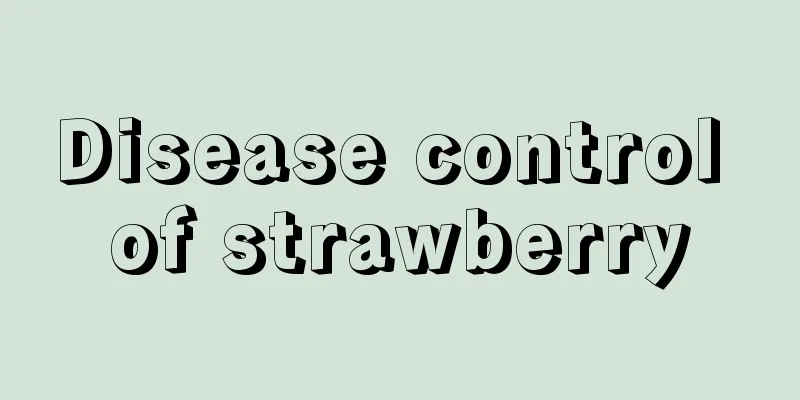Disease control of strawberry

1. Leaf spot Also known as snake eye disease, it mainly harms leaves, petioles, fruit stalks, young stems and seeds. Small dark purple spots form on the leaves, which expand into nearly circular or oval spots with purple-red-brown edges and grayish-white centers with slightly fine rings, making the entire spot look like a snake's eye. No small black particles form on the spots. 2. Powdery mildewIt mainly harms leaves, but also attacks flowers, fruits, fruit stalks and petioles. The leaves are rolled up into a spoon shape. The affected flower buds and petals turn purple-red and fail to bloom or fully bloom. The fruits do not swell but become elongated in shape; the young fruits lose their luster and harden. If strawberries are damaged during the ripening period, they will lose their commercial value. Prevention and control measures: Focus on spraying 0.3 degree Baume lime sulfur mixture on and around the diseased center plant. After harvesting, cut the leaves in the entire garden and spray them with 1000 times diluted 70% thiophanate-methyl, 800 times diluted 50% thiophanate-methyl, and 5000 times diluted 30% tebuconazole. 3. Botrytis cinereaIt is the main disease after flowering, and can occur on flowers, petals, fruits and leaves. During the expansion period Brown spots form on the fruit and gradually expand. Gray mold grows densely, causing the fruit to soften and rot, seriously affecting yield. Prevention and control measures: Carry out from budding to flowering stage, spray with 300 times diluted 25% carbendazim wettable powder, 800 times diluted 50% captan wettable powder, 500-700 times diluted 50% chlorpyrifos, etc. 4. Root rotStarting from the lower leaves, the leaf edges turn reddish brown and gradually wither upwards until they die. The pillars begin to turn dark brown and decay in the middle, and the central column of the roots is red. Prevention and control measures: Before transplanting strawberries, use 600 times diluted 40% asparagus green powder, pour it on the bed surface, then cover with soil, level the ground for transplanting, so as to effectively kill the pathogens in the soil, reduce the base number of fungal sources in the field, and reduce the chance of infection. 5. Verticillium wiltThis disease is a soil disease, and the main symptoms are deformed young leaves, yellowing leaves, and extremely rough leaf surfaces. The leaf edges then turn brown and wither inward until they die. Prevention and control measures: strictly introduce disease-free plants for planting; shorten the renewal period; disinfect the soil with 13.5 to 20 liters of chloropicrin or solar-powered film irrigation; those that have become diseased must be removed and burned. |
<<: Diseases of Pinus melilotifolia
>>: Ball orchid diseases and prevention methods
Recommend
How many yellow-pi trees can be planted per acre?
Kumquat is one of the fruits in southern my count...
What is the best season for planting and growing honey? What is the temperature?
Honeydew melon likes to grow in an environment wi...
These "3 types" of flowers are suitable for growing at home. The flowers can bloom all over the branches and live for decades!
Growing flowers is a happy thing. Plants, like an...
Where does wood ear grow?
Fungus is a plant of the Agaricales order, Agaric...
Can you grow succulents with garden soil and granules?
Can you grow succulents with garden soil and gran...
How to breed Dutch iron
Cutting propagation Cutting time Dutch iron can b...
How to grow large-leafed green radish
1. Maintenance methods Ordinary and large-leafed ...
How to care for cymbidium flowers during their blooming period? Can fertilizer be applied during flowering?
1. How to grow during the flowering period 1. Sui...
What is the best medicine for wheat stripe blight?
Wheat sheath blight is a worldwide disease with a...
How to cultivate cardinal coral
Growth habit Cardinal coral is native to the West...
How to trim the emerald green orchid to look good
When is the right time to prune the emerald green...
Common problems in summer plum maintenance
Be careful of wind Wintersweet is afraid of wind,...
Reasons and solutions for Milan's leaf shedding
Milan , also known as Milan, is favored by flower...
How to grow magnolia
1. Lighting Magnolia needs sufficient sunlight to...
Okra planting method and time season (key points of high-yield cultivation technology of okra seeds)
1. Suitable sowing time and season Sowing can onl...









